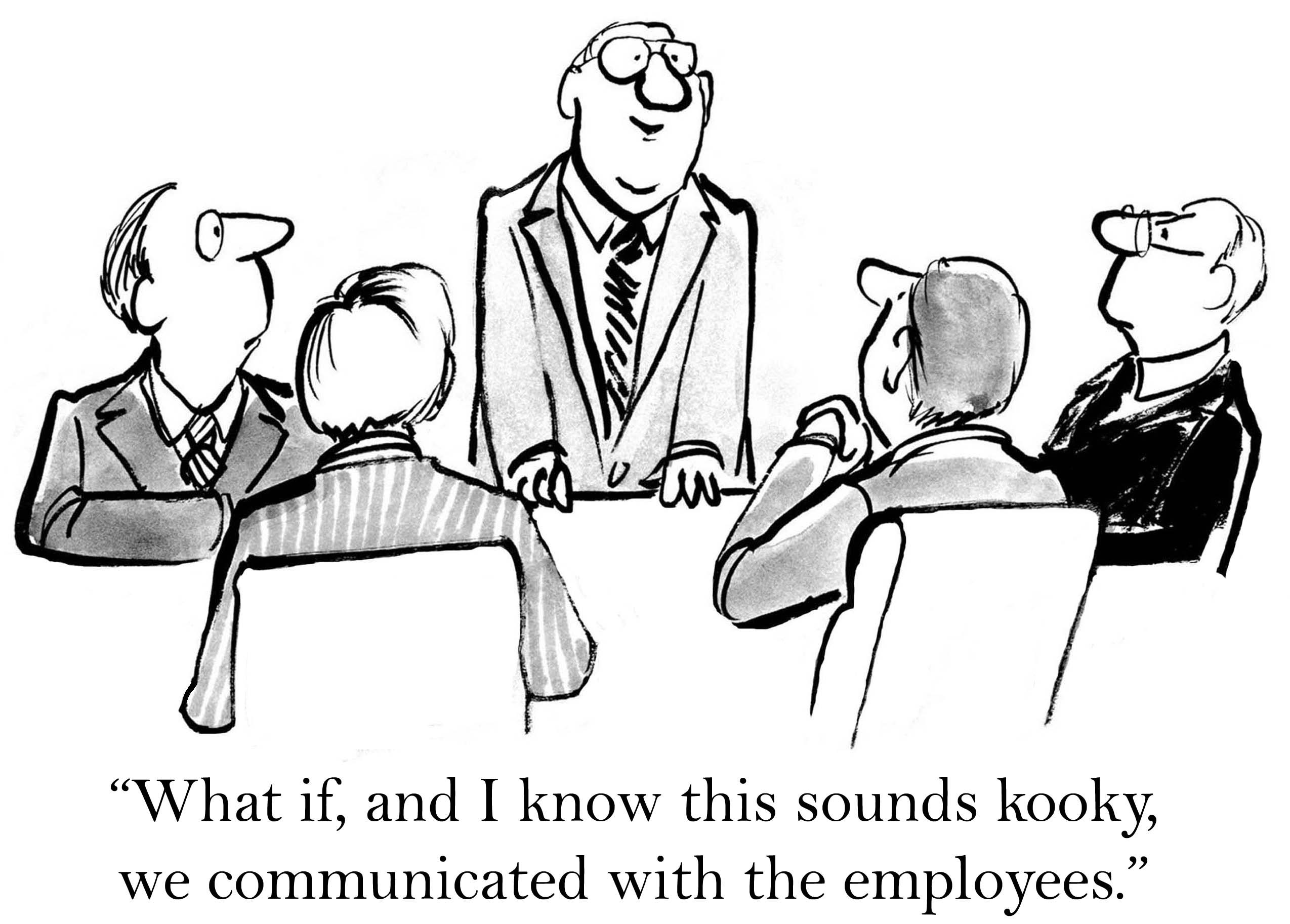Awesome Performance Feedback in Employee Performance Management [INFOGRAPHIC]
Accurately delivering and documenting performance feedback is a critical element in employee performance management. Using talent and performance management software makes the process of documenting observations, results, and the outcomes of performance feedback and coaching discussions much easier. Nonetheless, leaders at all levels find documenting performance feedback to be a challenge.

What's in it for you?
Effective delivery and documentation of performance feedback serves to:
- Clarify and reinforce performance expectations for you and your direct reports. Making notes using your performance management system on all performance and coaching discussions provides a source for both you and your direct reports to reference at any time. In some cases, an employee may hear what you say to them in a conversation but the message may not ‘sink in’ immediately. They may need to go back and review the documented feedback in order to understand your message. The documentation that you maintain is a valuable tool in providing clarity and direction to employees.
- Provide insight into performance patterns. Maintaining accurate performance documentation will allow you to pinpoint patterns that may occur over time. You will have the ability to go back to review a history of feedback notes versus rely upon your memory of countless events.
- Makes employee performance appraisal easier and more powerful. When you have regular performance discussions with your employees and document feedback and results, the performance appraisal is a culmination of your discussions over the course of the year. It will be easy for you to evaluate performance, there won’t be any surprises…and it will likely not take all that much time.
Do It Early and Often
DO Make Performance Feedback a Priority
Most managers have a varied set of responsibilities and can argue that other priorities take precedence over managing and documenting the performance of their teams. Finding time to effectively observe, provide and then document performance feedback information is important and you need to make it one of your priorities. Find ways to work it into your schedule. Period.
Documenting performance feedback is unlikely to be one of your favorite tasks. As such, your motivation to do it may be low. However, if you do a good job of it you will be surprised at how quickly you will become a better manager and improve the results of your team.
DO Confront Your Fears
There are times when you may have concerns or fears about documenting performance feedback. You may feel uneasy about documenting critical feedback about one of your team members because it can lead to confrontation and anxiety. However ignoring the situation only delays dealing with the issue and has deeper ramifications as others have probably observed the problem and become uncomfortable with it not being dealt with. Keep in mind that managing performance is an important aspect of your role and you must take responsibility for doing it.
Another common issue related to anxiety around performance feedback is mistaking motivation with de-motivation. Sometimes we may be hesitant to accurately deliver and document performance feedback for fear of ‘de-motivating’ an individual. However, the opposite is likely to happen. If an individual does not understand that a performance gap exists, they will be unlikely to take action to close the gap.
DO Be Consistent
Not documenting performance on a consistent basis produces a spotty record of performance feedback that is difficult to rely on when it is needed. Performance feedback should be documented on a regular basis, and in a consistent way across all direct reports. Establish a calendar and use reminders – once a week, twice a month - to review the progress and performance of each team member.
DON’T Avoid
Waiting several days, weeks, or months to document performance feedback results in incomplete and inaccurate documentation. Memories fade quickly, detail is lost, behavior is forgotten. Every effort to document performance feedback in a timely manner is important. Providing and documenting performance feedback needs to become a habit, not an occasional action. For some tips, check out this article on creating new habits: 18 Tricks to Make New Habits Stick.
DON'T Forget
As the manager you are responsible for all of the actions of your team and their results. Don’t forget that your team is a group of individuals each one motivated by different drivers. People need feedback for them to know where they stand and have a gauge to measure their contributions. Keeping your staff engaged and motivated is a huge responsibility and a key part of your job.
Send Clear Messages
DO Capture Situations
Everyone loves a compliment, but it is not helpful to you or an employee to record a note that says something like “great job!” without anything else to clarify what specifically was said or done that was so great. In order to be helpful to the employee and to you, performance feedback needs to be very specific. Feedback should describe the basics of the situation, the action that the individual took, and the impact of the action.
Given our new habits of tweeting, texting, and status updates, we sometimes forget how to write clearly. Work to ensure that your performance feedback is clearly written so that it is understood by all parties and can serve as an ongoing reference.
DO Highlight Behavior
Performance feedback should describe behaviors and document what an individual actually did. If the behavior was particularly effective, you should describe the behavior that was effective so the employee knows what to continue to do to be successful. If performance is ineffective, feedback should capture and describe what was ineffective about performance so that the employee knows what to change going forward.
DO Link Results
Lastly, performance feedback should include impact and describe the outcomes of performance. Your documentation should articulate the linkage between what the employee did and how it impacted the performance of the team or the organization. Understanding the impact of actions serves to fuel motivation to perform and is a critical aspect of performance feedback.
Can You Be Objective?
Do Know Your Bias
Performance feedback needs to be as objective as humanly possible and free from personal bias. However, it can be difficult to recognize our own biases. For example, some people tend to look at all situations from a positive perspective -- others from a negative perspective. Either view can impact the way in which we observe, deliver and document performance feedback.
Pay close attention to your biases about the individuals on your team. Being consistent in your delivery and documentation of performance feedback will provide you with multiple opportunities to objectively evaluate situations and document your observations.
Do Remove the Halo
Sometimes we make generalizations about individuals or categorize them (i.e., high performer, average performer, low performer) based upon our overall judgment about their performance or a specific event. This cognitive bias is commonly known as the Halo Effect (or Horns Effect). This tendency can color the way that we look at the performance of our direct reports and the way in which we deliver and document performance feedback throughout the year.
DON'T Psychoanalyze
Lastly, objectively providing feedback can be especially challenging when we have a natural desire to understand the motives of individuals. As a result, the way in which we view a situation is colored by what we think may be causing an employee to behave or perform in a certain way. For example, we may draw the conclusion that an individual is having difficulty following through on objectives because they are in the midst of a divorce. Psychoanalyzing why someone is doing something can be problematic. First, your analysis of the situation may be completely wrong and second, your conclusion will very likely impact your ability to document performance feedback. Ensure objectivity by documenting behaviors and results when providing feedback.
Employee performance management software can provide us with the tools that we need to consistently document performance feedback. Click below to see how viaPeople Performance Management can transform employee performance management at your company.
Share this
You May Also Like
These Related Stories

The Ultimate Plan for Tackling Poor Employee Performance

7 Manager Tips for Mastering the 1:1 Performance Check-In


